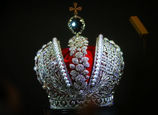
When the leading economies around the world announced a new round of quantitative easing, there are reports that over-issuance of paper money by China has made it the world’s largest note printing machine, exemplified by its note increment last year accounting for nearly half of the world’s total.
Many experts dismissed the claim as bloody ridiculous and one sided. It is inappropriate to base the claim of severe over-issuance on one single type of data. The reliable indicator for over-issuance is the price stability; whether the monetary policy is good or not is dependent on whether it is consistent with the growth rate and scale of the Chinese economy.
There is exaggeration in the claim of over-issuance
China’s money over-issuance has come into focus recently. The Central Bank statistics suggest that by the end of 2012, the balance of China M2 (broad money) reached the world’s highest of 97.4 trillion yuan, approximately one-fourth of the world’s total money supplies, or 1.5 times that of the United States. The ratio of M2 to GDP is up to a record high of 188 percent, compared with the 63 percent of the United States.
At the same period which is only one-third of China. It is this considerable difference that leads to the claim of over-issuance of China, and that provides the press with ammunition labeling China “the world’s largest note printing machine”.
Many experts argue that on the surface, there is some truth in basing the conclusion on comparison of data of China and the United States. But theoretical analysis or wider international comparison will reveal the judgment is made somewhat hastily. It is particularly too simplified and one sided to conclude over-issuance from large M2 and high GDP ratio. The conclusion is reached without taking into account the fact that money supply statistical standard, financing structure, and economic development characteristics vary from country to country.
“Even though China is issuing a lot of money, we cannot conclude over-issuance ignoring China’s rate of economic growth,” said Zhao Xijun, assistant dean of School of Finance, Renmin University of China.
According to Zhao, the issuance is appropriate when it is consistent with the growth rate and scale of the country’s economy. For example, if the U.S. economy slows down, incremental issuance will be over-issuance.
Reasons behind incremental issuance
In the opinion of Zhou Xiaochuan, president of the People's Bank of China, China’s real economic statistics only covered material departments in the past, but excluded service. Therefore, with the deepening marketization and rapid economic growth, money supply soon exceeds the requirement of “real economy” by the then statistical standards, exemplified by issuance in excess of the economy, or “excessive issuance of currency”. But in fact, money supply should meet the requirements of the real economy and service as well as financial market.
According to the Industrial Bank Chief Economist Lu Zhengwei, the ratio of M2 to GDP has been high in China for a long time. The reasons behind is related to China’s monetization process, in which the entry of previously non-market-transaction goods into the market spawns demand for more currency. On the other hand, it is relevant to the financing structure of our country’s society; M2 is unavoidably high, because much financing of the society’s financing structure comes from the bank.
Zhang Monan, associate researcher of World Economy Office, Economic Forecast Department, National Information Center, said that with the deepening of reforms, opening-up and marketization, our country’s demand for money has been rising such that money supply outpaces economic growth in average, leading to increase of M2 ratio to GDP. Then, since the accession to the WTO, China’s rapidly growing exports, coupled with the accumulation of foreign exchange reserves, have radically changed money creation schemes and supply structures. Finally, high dependence on investment is another important factor in passive currency over-issuance. Privileges that the state-owned economy enjoys in financial resources and soft constraint on the budget of state sectors result in greater financial resource inefficiencies; rapid economic growth cannot be achieved without higher credit and currency issuance.
Read the Chinese version at: “中國成最大印鈔機”一說太離譜, Source: People's Daily Overseas Edition, Author: Zhou Xiaoyuan
















 Moments that melt your heart during the Spring Festival travel rush
Moments that melt your heart during the Spring Festival travel rush


![]()
